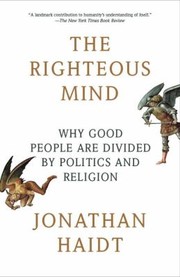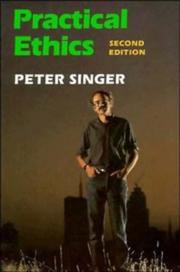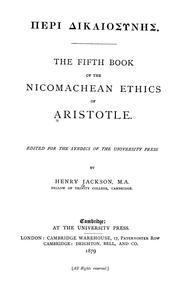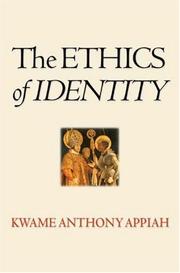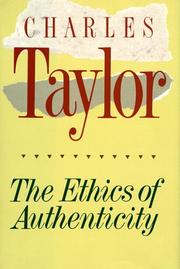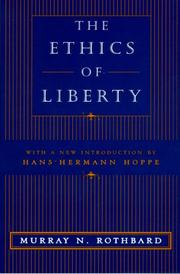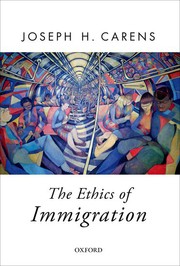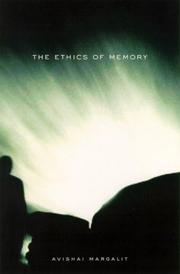Are you in search of thought-provoking and insightful books on ethics? Look no further! In this article, we will explore the realm of ethical literature and introduce you to some of the best books that delve into the complexities of moral philosophy and human behavior.
While popular titles often dominate the bookshelves, we aim to shed light on some lesser-known gems that offer a fresh perspective on ethics. These hidden treasures may not have gained mainstream recognition, but their unconventional ideas and unique viewpoints make them worth exploring.
From ancient philosophical treatises to contemporary works, we will take you on a journey through time and intellectual discourse. Whether you are a philosophy enthusiast or simply curious about ethical dilemmas, these books will challenge your assumptions and expand your understanding of the human experience.
So, if you are ready to embark on a literary adventure and discover the untapped potential of ethical literature, read on and prepare to be captivated by these extraordinary books on ethics.
Contents
- 1 The Righteous Mind: Why Good People Are Divided by Politics and Religion
- 2 Practical Ethics
- 3 The Ethics of Ambiguity
- 4 The Nicomachean Ethics
- 5 The Ethics of What We Eat
- 6 The Ethics of Identity
- 7 The Ethics of Authenticity
- 8 The Ethics of Liberty
- 9 The Ethics of Care: Personal, Political, and Global
- 10 The Ethics of Belief
- 11 The Ethics of Invention: Technology and the Human Future
- 12 The Ethics of War and Peace: An Introduction
- 13 The Ethics of Immigration
- 14 The Ethics of Memory
- 15 The Ethics of Killing: Problems at the Margins of Life
- 16 The Ethics of Human Enhancement: Understanding the Debate
- 17 The Ethics of Liberty in the 21st Century: A Human Rights Perspective
- 18 The Ethics of Climate Change: Right and Wrong in a Warming World
- 19 The Ethics of Influence: Government in the Age of Behavioral Science
- 20 The Ethics of Dissent: Managing Guerrilla Government
- 21 Conclusion
The Righteous Mind: Why Good People Are Divided by Politics and Religion
by Jonathan Haidt
If you’ve ever wondered why good people seem to be constantly at odds over politics and religion, then The Righteous Mind: Why Good People Are Divided by Politics and Religion is the book you’ve been waiting for. In this thought-provoking and enlightening exploration of human ethics, acclaimed author Jonathan Haidt delves deep into the intricate web of moral psychology that shapes our beliefs and divides us as a society.
Haidt challenges conventional wisdom and offers a fresh perspective on why we hold the ethical beliefs we do. He argues that our moral instincts are not solely based on rational reasoning, but are deeply rooted in our evolutionary history, cultural upbringing, and innate psychological tendencies. Using a combination of scientific research, anecdotes, and real-life examples, Haidt paints a vivid picture of how our moral intuitions and emotional responses drive our political and religious ideologies.
One of the most fascinating aspects of The Righteous Mind is Haidt’s exploration of why conservatives and liberals often seem to speak different moral languages. He reveals that conservatives tend to have a broader moral foundation, encompassing values such as loyalty, authority, and sanctity, while liberals focus more on fairness, care, and liberty. Haidt argues that understanding these moral differences is crucial for bridging the political and ideological divide that plagues our society.
But The Righteous Mind is not just a book about ethics; it’s a profound journey into the depths of human nature and the forces that shape our moral compass. Haidt’s writing is accessible and engaging, making complex ideas easy to grasp and thought-provoking to ponder.
If you’re looking for a book that challenges your preconceived notions, stimulates your intellect, and offers a fresh perspective on the ethical complexities of our world, then The Righteous Mind is a must-read. Whether you’re a seasoned philosopher or simply curious about the intricacies of human morality, Haidt’s masterful exploration of ethics will leave you with a deeper understanding of why good people are divided by politics and religion.
Practical Ethics
by Peter Singer
Are you ready to dive into a thought-provoking exploration of moral dilemmas and ethical decision-making? Look no further than Peter Singer’s “Practical Ethics.” This captivating book presents a fresh perspective on the complexities of our moral landscape, challenging conventional notions and pushing the boundaries of ethical thinking.
Singer masterfully weaves together a captivating narrative that invites readers to grapple with controversial topics such as animal rights, poverty, and the sanctity of life. Drawing from his extensive background in philosophy and ethics, Singer presents a compelling case for a radical reimagining of our ethical framework.
Unlike any other book on ethics you’ve come across, “Practical Ethics” takes a pragmatic approach, urging readers to consider the real-world implications of their moral choices. Singer’s writing is accessible and engaging, making complex philosophical concepts easy to grasp for both scholars and newcomers to the field.
What sets this book apart is its unwavering commitment to exploring unpopular ideas and challenging societal norms. Singer fearlessly tackles controversial topics head-on, forcing readers to confront their own beliefs and assumptions. It’s a refreshing departure from traditional ethical discourse and opens up new avenues for introspection and debate.
Whether you’re a philosophy enthusiast or simply curious about the complexities of ethical decision-making, “Practical Ethics” is a must-read. Prepare to have your perspectives challenged, your assumptions shattered, and your moral compass recalibrated. Don’t miss out on this groundbreaking book that dares to explore the uncharted territories of moral philosophy.
The Ethics of Ambiguity
by Simone de Beauvoir
Are you ready to dive deep into the fascinating realm of moral philosophy? Look no further than Simone de Beauvoir’s thought-provoking masterpiece, ‘The Ethics of Ambiguity.’ This captivating book challenges conventional notions of right and wrong, offering a fresh perspective on the intricacies of human ethics. De Beauvoir’s eloquent prose unveils the hidden complexities of our moral choices, delving into the inherent ambiguity that surrounds our ethical decision-making process.
In this groundbreaking work, de Beauvoir explores the idea that ethics is not a rigid set of rules, but rather a dynamic and ever-evolving concept. She contends that the ethical landscape is inherently ambiguous, reflecting the multifaceted nature of human existence. Through vivid anecdotes, philosophical insights, and profound reflections, de Beauvoir encourages readers to embrace this ambiguity and engage in critical self-reflection.
Unlike conventional ethics books that provide prescriptive answers, ‘The Ethics of Ambiguity’ invites readers to question established norms and challenge traditional moral frameworks. De Beauvoir’s unique perspective encourages us to embrace the uncertainty and embrace the responsibility that comes with our freedom of choice.
Throughout this captivating journey, de Beauvoir grapples with the dichotomy between individual freedom and collective responsibility, shedding light on the ethical implications of our actions. She explores the tension between authenticity and conformity, examining how societal expectations often shape our moral decision-making.
By daring to challenge the prevailing wisdom of her time, de Beauvoir presents a thought-provoking alternative to conventional ethical theories. Her profound insights will inspire readers to question their own beliefs and embrace the complexities of ethical dilemmas. Whether you are a philosophy enthusiast or simply seeking a fresh perspective on morality, ‘The Ethics of Ambiguity’ is an indispensable guide that will stimulate your intellect and broaden your understanding of the human condition.
The Nicomachean Ethics
by Aristotle
If you are seeking a thought-provoking and timeless read, then look no further than Aristotle’s masterpiece, The Nicomachean Ethics. In this captivating book on ethics, Aristotle delves deep into the exploration of human morality and virtue, offering a unique perspective that challenges conventional thinking. Through his meticulous analysis, he unravels the essence of ethics, shedding light on the virtues that lead to a fulfilling and virtuous life. Aristotle’s profound insights and philosophical wisdom make this book about ethics an indispensable guide for anyone seeking to understand the intricacies of human character and the pursuit of excellence.
The Ethics of What We Eat
by Peter Singer and Jim Mason
Are you ready to dive into a thought-provoking exploration of our ethical choices when it comes to what we eat? Look no further than “The Ethics of What We Eat” by Peter Singer and Jim Mason. This captivating book is not just another run-of-the-mill book on ethics; it challenges conventional beliefs and offers unique insights into the impact of our food choices on the environment, animals, and society.
Singer and Mason, renowned experts in their fields, take us on a journey through the intricate web of ethical considerations surrounding our food. They explore an array of thought-provoking questions: How do our food choices affect climate change? What are the ethical implications of factory farming? Is it possible to eat ethically in a complex, globalized world?
Unlike many other books about ethics, “The Ethics of What We Eat” doesn’t shy away from unveiling uncomfortable truths. It sheds light on the hidden consequences of our dietary habits, challenging us to question our assumptions and make informed choices. The authors present compelling arguments backed by extensive research, urging us to reevaluate our relationship with food.
What sets this ethics book apart is its ability to blend meticulous analysis with engaging storytelling. Singer and Mason skillfully weave together personal narratives, investigative journalism, and scientific evidence to create a captivating narrative that keeps you hooked from beginning to end. This unique approach not only educates but also sparks a desire for change.
Prepare to have your preconceived notions shattered as you delve into the pages of “The Ethics of What We Eat.” Whether you’re a seasoned advocate for ethical eating or just starting to explore the topic, this book is sure to challenge your perspective and inspire you to make more conscious choices. So grab a copy, open your mind, and embark on a journey that will forever change the way you think about food.
The Ethics of Identity
by Kwame Anthony Appiah
Are you ready to dive into a thought-provoking exploration of the intricate web of human identity? Look no further than Kwame Anthony Appiah’s captivating book on ethics, “The Ethics of Identity”. This enlightening masterpiece delves deep into the heart of what it means to be human, challenging conventional notions of identity and presenting fresh perspectives on ethics.
Appiah fearlessly tackles the complex and often controversial topic of ethics, shedding light on the ethical dilemmas that arise in our interconnected world. Drawing upon a rich tapestry of historical, cultural, and philosophical insights, he invites readers to question their own beliefs and assumptions about identity, morality, and the choices we make.
What sets “The Ethics of Identity” apart is Appiah’s ability to seamlessly blend profound philosophical ideas with real-world examples and personal anecdotes. His engaging storytelling style will keep you captivated from the very first page, as he navigates through the complexities of race, religion, nationality, and more.
Appiah challenges traditional notions of identity, urging us to embrace a more inclusive and empathetic understanding of ourselves and others. He presents a compelling argument for the importance of ethical deliberation and the need to navigate the intricate ethical terrain of our diverse society.
Prepare to have your mind expanded and your perspectives challenged as you embark on this intellectual journey. “The Ethics of Identity” is not just another book about ethics; it is a thought-provoking exploration that will leave you questioning the very foundations of your beliefs.
So, if you’re ready to delve into a captivating book that ignites the fires of introspection and challenges the status quo, grab a copy of Kwame Anthony Appiah’s “The Ethics of Identity” today and prepare to embark on an intellectual adventure like no other.
The Ethics of Authenticity
by Charles Taylor
Are you tired of the same old discussions on ethics? Looking for a fresh and thought-provoking perspective? Look no further than The Ethics of Authenticity by Charles Taylor. This groundbreaking book challenges conventional notions of ethics and offers a captivating exploration of the concept of authenticity.
In this thought-provoking book, Taylor delves into the complexities of ethics, delving into the very essence of what it means to be authentic. He challenges the prevailing moral frameworks and invites readers to question the norms and values that society imposes upon us. Taylor argues that true ethical living requires us to navigate our own path, free from the constraints of societal expectations.
Through a combination of in-depth analysis, philosophical insights, and real-life examples, Taylor presents a compelling case for embracing our individuality and forging our own ethical code. He argues that the pursuit of authenticity is not only morally imperative but also essential for our personal fulfillment and well-being.
Unlike other books on ethics, Taylor’s work doesn’t offer a one-size-fits-all approach. Instead, he encourages readers to critically examine their own values and beliefs, challenging them to think beyond the confines of traditional ethical frameworks. He invites us to question the inherent biases and assumptions that shape our understanding of what is right and wrong.
Prepare to have your preconceptions challenged and your perspectives expanded. The Ethics of Authenticity is a must-read for anyone seeking a deeper understanding of ethics and a fresh approach to moral living. Whether you’re a seasoned philosopher or simply curious about the complexities of human morality, this book will leave you contemplating the true nature of authenticity and the role it plays in our lives.
The Ethics of Liberty
by Murray N. Rothbard
If you’re on the hunt for a thought-provoking book on ethics, then look no further than Murray N. Rothbard’s masterpiece, The Ethics of Liberty. This groundbreaking work challenges conventional ideas and offers a fresh perspective on the subject. Rothbard delves into the intricacies of ethical theory, exploring concepts like individual rights, property rights, and the non-aggression principle.
What sets this book apart is Rothbard’s unique take on ethics. He presents a radical argument for a fully libertarian society, advocating for the complete elimination of state intervention in all aspects of life. His ideas may be considered unpopular by some, but they serve as a catalyst for stimulating intellectual discourse.
Rothbard’s writing style is engaging and accessible, making complex ethical theories understandable for readers from all backgrounds. He presents his arguments in a logical and coherent manner, backed by extensive research and evidence. The book is not just a philosophical treatise; it is a practical guide to understanding the ethical implications of our choices and actions.
The Ethics of Liberty challenges readers to question societal norms and reevaluate their own moral compass. Whether you are a seasoned philosopher or new to the world of ethics, this book offers a fresh and thought-provoking approach to the subject. Prepare to have your preconceived notions shattered and embark on a journey of intellectual discovery. Get ready to expand your understanding of ethics with this captivating and controversial book.
The Ethics of Care: Personal, Political, and Global
by Virginia Held
If you’re in search of a thought-provoking read that delves into the intricate realm of moral values and human relationships, look no further than “The Ethics of Care: Personal, Political, and Global” by Virginia Held. This captivating book presents a refreshing perspective on the topic of ethics, exploring the profound impact that care can have in our personal lives, the political sphere, and even on a global scale. Held challenges conventional notions of ethics, offering unique and often overlooked insights that will undoubtedly leave you contemplating the interconnectedness of our actions and the importance of compassion in shaping a just society.
Unlike many other books on ethics, “The Ethics of Care” takes a fresh approach by emphasizing the significance of care as a foundational value. Held argues that our ability to care for others extends beyond individual relationships and should permeate our political and global endeavors. She skillfully weaves together personal anecdotes, philosophical analysis, and real-world examples to demonstrate the transformative power of care in various contexts.
What sets this book apart is its unwavering commitment to exploring ethics holistically, challenging the traditional focus on abstract principles and rules. Held skillfully navigates complex topics such as justice, autonomy, and responsibility, demonstrating how care can enrich our understanding and application of these concepts. By examining the ethics of care from multiple angles, she uncovers the intricate web of connections between personal choices, political structures, and global issues, shedding light on the often overlooked interdependencies that shape our world.
Throughout “The Ethics of Care,” Held presents a compelling argument for the integration of care into our ethical framework. She challenges the prevailing individualistic approach to ethics, urging readers to recognize the importance of empathy, compassion, and interconnectedness in fostering a more just and harmonious society. Her ideas are both enlightening and accessible, making this book a valuable resource for anyone interested in exploring ethics beyond the confines of traditional moral theories.
If you’re seeking a captivating and thought-provoking book about ethics that will challenge your preconceived notions and inspire you to reevaluate your own ethical values, “The Ethics of Care” is an essential addition to your reading list. Virginia Held’s eloquent prose and fresh perspectives will leave you with a newfound understanding of the profound impact care can have on our personal lives, political landscape, and the global community we inhabit.
The Ethics of Belief
by William Kingdon Clifford
Are you ready to dive into the fascinating world of ethical beliefs? Look no further than The Ethics of Belief by William Kingdon Clifford. This thought-provoking book delves into the complex realm of ethics, exploring the moral implications behind our beliefs and the responsibility we have in forming them.
In this captivating read, Clifford challenges conventional wisdom and presents unique perspectives on the ethical dimensions of our beliefs. Unlike other books on ethics that simply scratch the surface, The Ethics of Belief delves deep into the intricate web of ethical decision-making, offering fresh insights and alternative viewpoints.
Clifford invites readers to question the foundations of their beliefs, encouraging intellectual curiosity and critical thinking. He challenges the notion that our beliefs are solely a matter of personal choice, arguing that they carry moral weight and should be subject to ethical scrutiny.
Throughout the book, Clifford weaves together engaging anecdotes, persuasive arguments, and thought experiments to illustrate the importance of ethical considerations when it comes to our beliefs. He explores the consequences of holding unjustified beliefs and highlights the potential harm they can inflict on individuals and society as a whole.
What sets The Ethics of Belief apart is its ability to make complex philosophical concepts accessible to a wide range of readers. Clifford’s writing style is clear and concise, making it easy for both novices and experts in ethics to grasp the core ideas he presents.
If you’re searching for a thought-provoking and enlightening book about ethics, look no further. The Ethics of Belief offers a fresh perspective on a topic that is often overlooked or oversimplified. It challenges readers to reevaluate their own beliefs and encourages them to strive for a more ethically grounded worldview.
So, why wait? Embark on this intellectual journey and discover the hidden depths of ethical beliefs with The Ethics of Belief by William Kingdon Clifford. Your mind will thank you for it.
The Ethics of Invention: Technology and the Human Future
by Sheila Jasanoff
Are you ready to explore the fascinating world of ethics? Look no further than “The Ethics of Invention: Technology and the Human Future” by Sheila Jasanoff. This thought-provoking book delves into the complex and often overlooked intersection between technology and ethics.
In this compelling read, Jasanoff challenges conventional wisdom by questioning the ethical implications of our ever-advancing technological landscape. Drawing on her expertise in science and technology studies, she navigates through the intricate web of ethical dilemmas presented by innovation.
Uncover the profound impact of technological advancements on our society and the values we hold dear. Jasanoff explores the multifaceted relationship between humans and technology, raising important questions about responsibility, accountability, and the blurred boundaries between progress and ethical considerations.
Unlike any other book on ethics, “The Ethics of Invention” presents a fresh perspective on this timeless topic. Jasanoff’s engaging writing style captivates readers, guiding them through a thought-provoking journey that challenges preconceived notions and prompts critical thinking.
Whether you’re an avid reader fascinated by the philosophical implications of technology or simply seeking a stimulating read, this book is a must-have for your collection. Prepare to embark on an intellectual adventure that will leave you questioning the very essence of ethics in our technologically driven world.
The Ethics of War and Peace: An Introduction
by Helen Frowe
If you’re looking for a thought-provoking book on ethics that delves into the complex realm of war and peace, then “The Ethics of War and Peace: An Introduction” by Helen Frowe is a must-read. This captivating book explores the moral dilemmas surrounding armed conflict and the pursuit of peace, shedding light on the often overlooked perspectives. Frowe challenges conventional notions and presents fresh perspectives on the subject, making it an essential read for anyone interested in the intricacies of ethical decision-making.
Unlike other books about ethics, Frowe’s insightful approach encourages readers to question traditional ethical frameworks and opens up new avenues for discussion. The author’s engaging writing style effortlessly guides readers through the intricate ethical landscapes, making complex concepts accessible to all. Frowe’s commitment to presenting a balanced view ensures that readers are exposed to a wide range of ethical perspectives, allowing them to form their own opinions.
This book is not just a theoretical exploration; it also tackles real-world ethical dilemmas that arise in situations of conflict and peacekeeping. Frowe’s meticulous research and meticulous analysis highlight the nuances and complexities often overlooked in mainstream discussions. By exploring topics such as self-defense, humanitarian intervention, and the responsibility to protect, the book challenges popular assumptions and prompts readers to reevaluate their own ethical beliefs.
One of the book’s many strengths is its ability to present unpopular ideas that are often overlooked in mainstream discourse. Frowe’s thought-provoking arguments push readers to consider alternative perspectives and question the status quo. This book is an intellectual journey that challenges preconceived notions and encourages readers to critically examine the ethical implications of war and peace.
Whether you are a student of philosophy, a seasoned scholar, or simply curious about ethics, “The Ethics of War and Peace: An Introduction” will undoubtedly broaden your understanding of this complex subject. Frowe’s fresh insights and engaging writing style make this book a compelling and essential addition to any library. So grab a copy and embark on a captivating exploration of ethics that will leave you pondering the complexities of war and peace long after you turn the final page.
The Ethics of Immigration
by Joseph Carens
If you are seeking a thought-provoking read that challenges conventional notions of ethics, then Joseph Carens’ book on the ethics of immigration is a must-have. In this groundbreaking work, Carens delves deep into the ethical implications surrounding immigration, unraveling complex moral dilemmas that often go unnoticed. This book about ethics goes beyond the surface-level arguments, offering unique and unpopular ideas that will ignite your intellectual curiosity.
Carens explores the intersection of morality, politics, and human rights, shedding light on the ethical complexities of immigration policies. Through eloquent prose and meticulous research, he presents a compelling case for reevaluating traditional perspectives on immigration. Carens’ thought-provoking arguments challenge readers to question preconceived notions and consider alternative viewpoints.
What sets this ethics book apart is its ability to navigate the delicate balance between universal ethical principles and practical political realities. Carens skillfully weaves together philosophical theories with real-world examples, illustrating the human impact of immigration policies. He tackles difficult questions surrounding borders, citizenship, and the rights of migrants, offering fresh insights that will leave you pondering long after you’ve turned the last page.
While some may shy away from books on ethics, fearing a dry and academic read, Carens’ accessible writing style makes this book a joy to delve into. His clear and concise explanations ensure that even those unfamiliar with the subject matter will grasp the intricate concepts presented. Carens’ ability to present complex ideas in a relatable manner is a testament to his expertise as a scholar and his dedication to making ethics accessible to all.
The Ethics of Immigration is a captivating exploration of a topic often overlooked in moral discussions. Carens’ insights challenge the status quo and offer a fresh perspective on the ethics of immigration. Whether you are an academic, a policy-maker, or simply an individual interested in exploring the ethical dimensions of immigration, this book is a must-read. Prepare to have your beliefs challenged and your mind opened as you embark on this fascinating journey into the uncharted territory of ethical immigration.
The Ethics of Memory
by Avishai Margalit
If you’re seeking a thought-provoking book that delves into the complex realm of moral philosophy, look no further than “The Ethics of Memory” by Avishai Margalit. This compelling book explores the intricate interplay between memory and ethics, shedding light on the profound ethical implications of our individual and collective recollections. Margalit challenges conventional notions and presents unique and often unpopular ideas that will leave you questioning your own understanding of morality.
In this book, Margalit takes us on a captivating journey through the labyrinthine landscape of memory, examining its relationship with our sense of right and wrong. He delves into the nuances of memory and its moral dimensions, exploring how our memories shape our identities, influence our actions, and impact our relationships with others.
What sets “The Ethics of Memory” apart is Margalit’s ability to present fresh perspectives on ethics, offering insights that may challenge your preconceived notions. He masterfully weaves together philosophy, psychology, and real-life examples to create a compelling narrative that will captivate both scholars and general readers alike.
Throughout the book, Margalit engages with difficult questions and tackles controversial topics head-on. He explores the ethical implications of forgetting, forgiveness, and the selective nature of memory. Margalit also delves into the moral responsibility we have towards collective memories, such as historical injustices and societal traumas.
With its thought-provoking content and rigorous intellectual inquiry, “The Ethics of Memory” is a must-read for anyone interested in the intersection of memory and ethics. Margalit’s unique perspective challenges conventional wisdom and offers fresh insights into the complex nature of morality. Prepare to have your beliefs questioned and your mind expanded as you embark on this captivating journey through the ethical dimensions of memory.
The Ethics of Killing: Problems at the Margins of Life
by Jeff McMahan
Looking for a thought-provoking book that challenges traditional ethical frameworks? Look no further than Jeff McMahan’s The Ethics of Killing: Problems at the Margins of Life. This groundbreaking book delves into the intricate web of ethical dilemmas surrounding life and death, pushing the boundaries of conventional thinking.
Unlike any other book on ethics, McMahan fearlessly explores the gray areas often overlooked in discussions about life’s sanctity. With eloquent prose and meticulous research, he tackles controversial topics such as abortion, euthanasia, and self-defense, shedding light on the complexities of these moral quandaries.
What sets this ethics book apart is McMahan’s ability to present compelling arguments that challenge long-held beliefs. He skillfully navigates the murky waters of moral relativism, highlighting the inherent contradictions and inconsistencies in ethical theories.
Prepare to have your preconceptions shattered as McMahan introduces unique and unpopular ideas that will leave you questioning your own moral compass. His thought experiments and hypothetical scenarios force readers to confront uncomfortable truths and consider alternative perspectives.
With each turn of the page, McMahan’s insights will ignite your intellectual curiosity and ignite lively debates among friends and colleagues. This book is not for the faint of heart, but for those who crave intellectual stimulation and are willing to grapple with the complexity of ethical dilemmas.
So, if you’re seeking a book about ethics that dares to challenge the status quo, The Ethics of Killing: Problems at the Margins of Life is a must-read. Prepare to embark on a journey of self-reflection and critical thinking that will forever change the way you view the world.
The Ethics of Human Enhancement: Understanding the Debate
by Steve Clarke
Are you ready to delve into the thought-provoking world of ethical dilemmas? Look no further than “The Ethics of Human Enhancement: Understanding the Debate” by Steve Clarke. This captivating book takes you on a journey through the intricate labyrinth of moral questions surrounding human enhancement.
Clarke, a master of ethical exploration, presents a comprehensive analysis of the ethics surrounding human enhancement, captivating readers with his profound insights and engaging writing style. He skillfully dissects the complex web of ethical considerations, providing a fresh perspective on this controversial topic.
Unlike any other book on ethics, “The Ethics of Human Enhancement” challenges conventional wisdom and introduces unique and unpopular ideas. Clarke encourages readers to question their preconceived notions and delve deeper into the ethical implications of human enhancement.
Through vivid examples and compelling arguments, Clarke explores the ethical dimensions of human enhancement, inviting readers to ponder the consequences of altering our fundamental human nature. He explores the delicate balance between personal autonomy and societal well-being, shedding light on the potential risks and benefits of human enhancement.
What sets this book apart is Clarke’s ability to deliver complex ideas in a digestible manner. Drawing on his expertise in the field, he effortlessly blends philosophical concepts with real-world scenarios, making the book accessible to both scholars and general readers alike.
Whether you are a seasoned philosopher or simply curious about the ethics of human enhancement, this book is a must-read. Brace yourself for a thought-provoking journey that will challenge your beliefs and broaden your understanding of the intricate tapestry that is ethics.
The Ethics of Liberty in the 21st Century: A Human Rights Perspective
by Tibor R. Machan
Are you searching for a thought-provoking book on ethics that challenges traditional perspectives and explores the concept of human rights in the 21st century? Look no further than “The Ethics of Liberty in the 21st Century: A Human Rights Perspective” by Tibor R. Machan. This captivating and insightful book delves into the intricate world of ethics, shedding light on uncommon and unpopular ideas that will surely make you question your own beliefs.
Unlike many other books about ethics, “The Ethics of Liberty in the 21st Century” presents a fresh and unique perspective on the subject. Machan, a renowned philosopher, offers a profound exploration of human rights from a seldom-discussed angle, challenging conventional wisdom and inviting readers to critically examine their own moral compass.
Throughout the book, Machan delves into various ethical dilemmas that arise in our modern society, weaving together a compelling narrative that highlights the importance of individual liberties and human rights. By exploring such topics as personal autonomy, property rights, and the role of government, Machan encourages readers to consider alternative viewpoints and question the moral frameworks that shape our lives.
One of the most intriguing aspects of “The Ethics of Liberty in the 21st Century” is Machan’s ability to present complex philosophical ideas in a clear and accessible manner. His writing style is engaging and compelling, allowing readers to easily grasp the intricacies of ethical theory and apply them to real-world scenarios.
Whether you are an avid reader of ethics books or simply curious about exploring new perspectives, “The Ethics of Liberty in the 21st Century” is a must-read. Machan’s insightful analysis and thought-provoking arguments will challenge your preconceived notions, ignite your intellectual curiosity, and leave you with a deeper understanding of the ethical landscape in the modern world.
The Ethics of Climate Change: Right and Wrong in a Warming World
by James Garvey
Are you ready to dive into the complex and thought-provoking world of climate change through the lens of ethics? Look no further than James Garvey’s captivating book, “The Ethics of Climate Change: Right and Wrong in a Warming World.” This remarkable book tackles the pressing issue of climate change from a unique perspective – ethics.
Garvey’s work is not just another book about climate change; it is a powerful exploration of the ethical dimensions surrounding this global crisis. In a world where discussions about climate change are often dominated by scientific and political perspectives, this book on ethics offers a refreshing and essential viewpoint that is often overlooked.
With eloquence and clarity, Garvey delves into the moral questions that arise from climate change, challenging readers to consider the ethical implications of our actions or inactions. He skillfully navigates through complex topics, offering profound insights and thought-provoking arguments that will make you question your own moral framework.
What sets this ethics book apart is Garvey’s ability to make a compelling case for the urgency of addressing climate change from a moral standpoint. He explores questions such as: What are our responsibilities to future generations? How do we balance the needs of the present with the well-being of future societies? And what is our obligation to the natural world?
Garvey’s writing style effortlessly combines intellectual rigor with accessible language, making this book a captivating read for both experts and those new to the subject. His engaging storytelling and real-life examples will keep you turning the pages, eager to delve deeper into the ethical complexities of climate change.
Prepare to have your perspectives challenged and your moral compass recalibrated. “The Ethics of Climate Change: Right and Wrong in a Warming World” is a must-read for anyone seeking a deeper understanding of the ethical dimensions of this global crisis. So grab a copy, open your mind, and embark on a journey that will leave you with a renewed sense of responsibility and a desire for positive change.
The Ethics of Influence: Government in the Age of Behavioral Science
by Cass R. Sunstein
Are you fascinated by the intricate web of ethics that governs our society? Do you ever question the influence that governments wield over our lives? If so, then “The Ethics of Influence: Government in the Age of Behavioral Science” is the book for you. Written by the renowned author Cass R. Sunstein, this thought-provoking masterpiece delves deep into the realm of ethics, exploring the dynamic relationship between government and the ever-evolving field of behavioral science.
In this captivating book, Sunstein explores the ethical implications of government interventions that are designed to shape our behavior. Drawing on his expertise in law and behavioral economics, he offers a fresh perspective on the ethics of influence, challenging conventional notions and shedding light on the complex ethical dilemmas that governments face in the modern era.
What sets “The Ethics of Influence” apart from other books on ethics is its unique focus on the intersection of government and behavioral science. Sunstein skillfully navigates through the moral complexities of using behavioral insights to shape public policies, raising important questions about consent, autonomy, and the limits of government power.
With a masterful blend of rigorous analysis and compelling storytelling, Sunstein takes readers on a captivating journey into the ethical dimensions of government influence. He challenges us to question our assumptions, to reevaluate our beliefs, and to confront the difficult ethical choices that lie at the heart of our society.
Whether you are a seasoned scholar or simply curious about the ethical implications of government interventions, this book is a must-read. “The Ethics of Influence: Government in the Age of Behavioral Science” is a thought-provoking and timely exploration of a topic that is often overlooked. So, grab a copy, and prepare to embark on a captivating intellectual adventure that will challenge your understanding of ethics and the role of government in our lives.
The Ethics of Dissent: Managing Guerrilla Government
by Rosemary O’Leary
If you’re looking for a thought-provoking and timely read, then “The Ethics of Dissent: Managing Guerrilla Government” by Rosemary O’Leary is the book for you. This captivating exploration delves into the often overlooked realm of ethics, offering a fresh perspective on the subject that is sure to challenge your preconceived notions.
O’Leary’s unique approach to the topic of ethics sets this book apart from others in the genre. Rather than presenting a conventional analysis of ethical dilemmas, she delves into the intriguing concept of “guerrilla government,” exploring how dissent can be a powerful force for change within bureaucratic systems.
Through a series of compelling case studies and real-life examples, O’Leary illuminates the complex ethical issues that arise when individuals within organizations challenge the status quo. She examines the moral implications of grassroots activism, whistleblowing, and civil disobedience, providing readers with a comprehensive understanding of the ethical dimensions of dissent.
What makes this book truly remarkable is O’Leary’s ability to present unpopular ideas in a persuasive and accessible manner. She tackles controversial topics head-on, inviting readers to question their own beliefs and values. Her writing style is engaging and conversational, making this book a pleasure to read.
Whether you are a seasoned philosopher or simply curious about the ethical implications of dissent, “The Ethics of Dissent: Managing Guerrilla Government” offers a refreshing and enlightening perspective. Prepare to have your mind opened and your perspectives challenged as O’Leary guides you through the complex world of ethics.
Conclusion
In conclusion, the world of books about ethics is a vast and diverse one, offering readers a multitude of perspectives and ideas to explore. While many popular titles dominate the shelves, there are hidden gems that deserve more attention. These books may not have gained widespread recognition, but they offer unique and thought-provoking insights into the complex realm of ethical dilemmas and moral decision-making.
One such underrated book is “The Ethics of Ambiguity” by Simone de Beauvoir. While not as widely talked about as some of her other works, this book delves into the existentialist perspective on ethics and the inherent ambiguity of human existence. It challenges traditional notions of morality and encourages readers to embrace the uncertainty of ethical choices.
Another lesser-known gem is “The Righteous Mind” by Jonathan Haidt. This book explores the moral foundations that shape our beliefs and judgments, shedding light on why people with different political ideologies often have such difficulty understanding one another. It challenges readers to expand their moral horizons and consider alternative perspectives.
Furthermore, “The Virtue of Selfishness” by Ayn Rand presents a controversial take on ethics, advocating for rational self-interest as the foundation of morality. While Rand’s ideas have been widely criticized, her book offers a unique perspective that challenges conventional moral frameworks and encourages readers to question their deeply ingrained beliefs.
While these books may not be as well-known as some of the classics, they offer valuable insights and alternative viewpoints that can enrich our understanding of ethics. So, next time you’re browsing the shelves or scrolling through online bookstores, consider venturing beyond the popular choices and give these hidden treasures a chance. You may find yourself engaged in a truly enlightening and thought-provoking reading experience.
